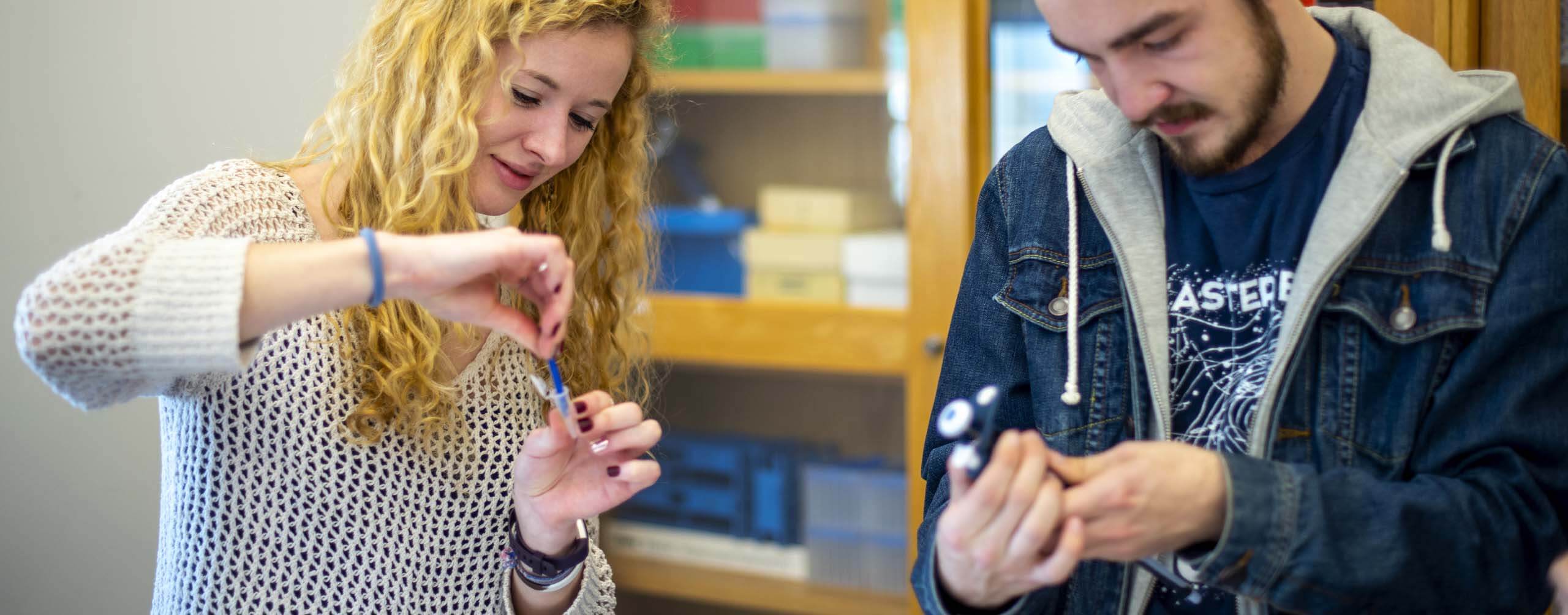
Microbiology
College of Earth, Life, and Health Sciences
Microbiology is the study of microscopic forms of life such as bacteria and viruses and the immune response to these microorganisms. A career in Microbiology is an opportunity to explore new phenomena, participate at the frontiers of the most actively expanding areas of science today, and make significant contributions to human beings, our society and the world.
Microbioloogy is a broad, multidisciplinary field using techniques of genetics, chemistry, biochemistry, physiology, ecology, and pathology to study the biology of microorganisms from gene expression at the molecular level to the composition of populations of microorganisms.
The programs is designed to give students a broad background in the biological and physical sciences and an opportunity for in-depth concentration in one or more of these disciplines.
A key aspect of the program is the opportunity to gain hands-on experience in the laboratory. Laboratory courses are offered in fundamental aspects of biochemistry and microbiology as well as specialized topics such as recombinant DNA techniques, virology, cell culture, immunology, pathogenic microbiology and microbial genetics and diversity.
In their senior year, all majors are required to engage in independent research with a faculty member. This direct link to active national and international-level research activities is an important aspect of our undergraduate programs. Students become part of a research team in the faculty’s laboratory and are actively engaged in ongoing research projects that are both publicly and privately funded.
Our faculty are active in a variety of research fields. Many have working relationships with top research institutes in Maine, such as The Jackson Laboratory and Maine Institute for Human Genetics and Health. Funding for faculty research comes from the National Science Foundation, National Institutes of Health and other national organizations
Highly motivated and qualified majors often work in faculty labs very early in their education and continue throughout their college careers.
Our majors have been very successful in selection for early acceptance to Tufts University School of Medicine through the Tufts Maine Track Early Assurance program.
Our graduates have taken positions in university research laboratories; biotechnology industries; medical, dental and veterinary research laboratories; public health laboratories; pharmaceutical, food and chemical industries; and environmental research and monitoring laboratories.
Our majors also find that they are highly competitive in getting into graduate programs at colleges and universities around the country. Our students are very competitive for admission to medical schools and other health-related fields as a result of our rigorous biochemistry and microbiology courses.
Melody Neely
Chair
Hitchner Hall, Room 360
207.581.1513 | melody.neely@maine.edu
Ed Bernard
Undergraduate Coordinator
Hitchner Hall, Room 284
207.581.2804 | edward.bernard@maine.edu
Microbiology
College of Earth, Life, and Health Sciences
Hitchner Hall
207.581.2810
